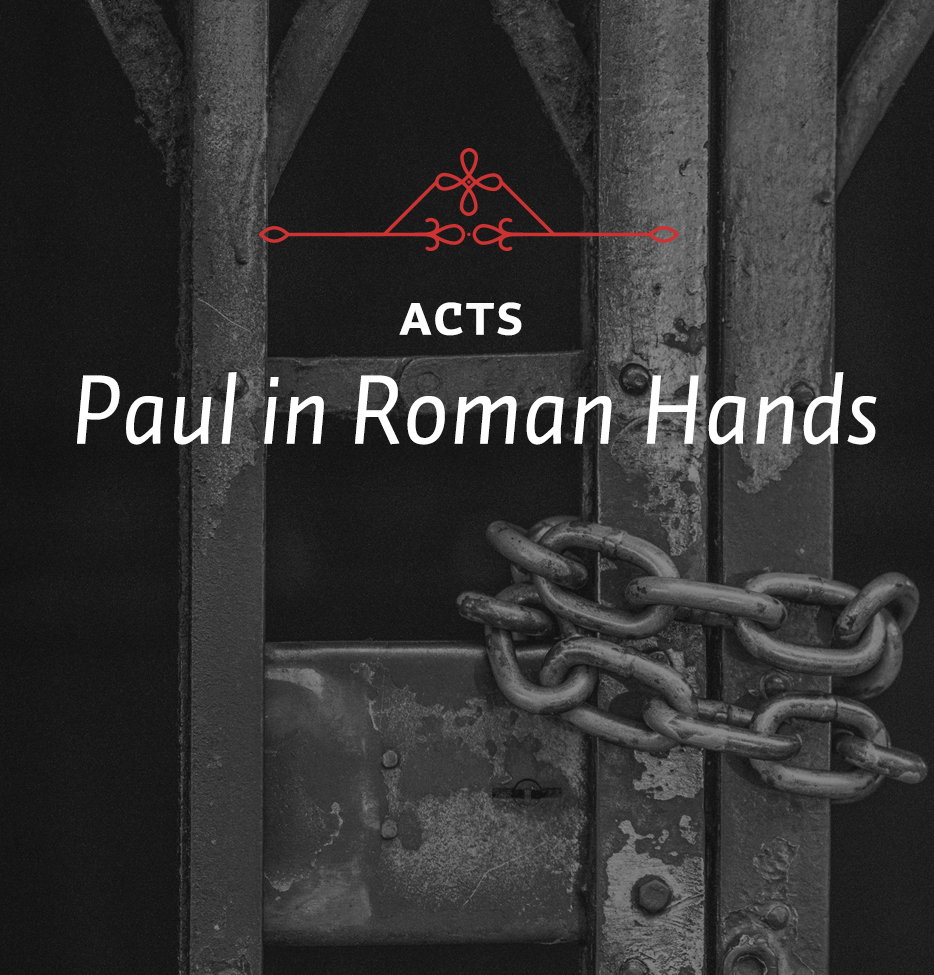When we see the Roman government functioning wisely and according to the law, as it did in these circumstances, we see the state functioning as it should function.
What is the role of the state? In the Western world, we have fanciful ideas of what we think the state should do for us today. But the role of the state, as the Bible speaks about it, is just twofold. The state exists: 1) to establish, maintain and assure justice; and 2) to provide for the defense of its citizens. Justice and defense. And, of course, that is exactly what this Roman commander, operating on behalf of the Roman government, had done or was in the process of doing. There can be different kinds of disorder, of course. There can be disorder without; then the state must defend its citizens against enemies. There can be disorder within; then it has to defend against internal chaos. In this case, the disorder was within, and the commander had intervened rightly to save Paul and stop the riot.
Moreover, he was concerned with justice. That is, he was operating under the strictures of explicit Roman law. In fact, when he later called the Sanhedrin together to find out what their accusation against Paul may have been, he was trying to push this concern for justice even further.
The problem today is that we look to the state for things the state was never intended to do. And the state, perhaps in part as a result of its mistaken attempt to do these other things, sometimes neglects the two things for which it is chiefly responsible. We have entered into a time in American history when people want the state to provide them with security. They expect the state to care for them from the cradle to the grave. But the state was never meant to do that. As a matter of fact, when we are talking about the care of people, this care is a duty God has given to his people, the church, and to families which have a moral obligation to care for their own members. This is not something the state should do. Nor can the state do it well, even if it tries.
The tragedy of our day is not only that we look to the state to do things which we are supposed to do ourselves (and can do much better than the state can, if we will do them), but that the state also is failing to do the things God created it to do. Defense from enemies? Yes, if what we are thinking about is enemies without. But no, if we are thinking of dangers and turmoil within the country. And justice? It is in this area that our system fails most. We need to face that. I believe we are going to have to face it increasingly in the years to come.
As I look back over the last ten or twenty years, I remember a time when the minorities in our country were saying something like this: “You speak of justice and you think you live in a country that provides for justice, but that is only because you are well off. Minorities don’t get justice; the poor don’t get justice. Only the rich get justice.” I remember hearing that ten or twenty years ago and thinking that it was basically unfair. There may be miscarriages of justice among the poor, I acknowledged, and certainly the poor do not get quite the same attention as the rich, since they are unable to pay for it. But it is not really true to say that only the rich get justice. Certainly we are a nation ruled by law.
However, as the years have gone by, I have become increasingly aware that there was and continues to be much truth in that early accusation—at least, there is more truth to it than we would like to think. Most of us have never been in a legal proceeding and, therefore, do not know how much money it takes to pursue a case or defend oneself against an accusation. Just get sued, and you will find out how difficult and how expensive it is to defend yourself legally. What I am saying is that today justice is often not at all a matter of right or law but of money. Do you have enough money to sustain your case? That is what it boils down to.
When we look at the Roman Empire we tend to exclaim, “What a cruel empire it was.” It was capable of great cruelty. But when I look at how the authorities dealt with Paul in this instance I find a state which, for all its ignorance of the true God, was nevertheless operating quite correctly.






